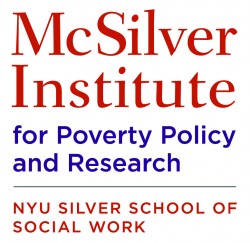 proposed policies concerning food assistance, housing subsidies, and childcare services. Citing the EITC as a proven way to alleviate poverty,the Wisconsin Congressman’s plan also proposes to expand the program through simplification of the application process.
proposed policies concerning food assistance, housing subsidies, and childcare services. Citing the EITC as a proven way to alleviate poverty,the Wisconsin Congressman’s plan also proposes to expand the program through simplification of the application process.Another significant aspect of the Ryan plan focuses on reforming education through distributing block grants, refinancing higher education, expanding accreditation options so that more students could receive financial aid, and consolidating federal jobs programs. Again, this approach would shift the emphasis from Washington to state governments in determining the allocation of funds to anti-poverty programs and policies. Congressman Ryan has stated that he does not intend to cut the budget but redirect funds to create space for more flexibility at the state level.
Direct Service Implications
While taken as a whole, “Expanding Opportunity in America” would completely transform how much of the social safety net operates in the United States. Under the current make-up of Congress, Ryan’s plan is more likely a jumping off point for Republicans changing their tone and approach to addressing poverty ahead of the 2014 midterm and 2016 presidential elections than any likely imminent policy changes. The idea of combining federal assistance programs into block grants to give states more flexibility in how those dollars are spent is something to keep an eye on, however, as it could put serious strains on certain services with the potential decrease of available resources.
Courtesy of McSilver Institute of Poverty Policy and Research who has kindly given SJS permission to syndicate this piece.
Disclaimer: The views and opinions expressed in the Policy News Briefs are not necessarily the views of the McSilver Institute for Poverty Policy and Research or NYU’s Silver School of Social Work. If you have comments or suggestions about this service, contact us at info@mcsilver.org.
Sources:
Our authors want to hear from you! Click to leave a comment
Related Posts




I invite Paul Ryan to make a stop in the neighborhood where I minister and provide services. Stop in to see the barriers to education and employment. Stop by Mr. Ryan to see the mothers (and fathers) that come to our food pantry after working 2 jobs. They still cannot keep food on the table. We are serving more clients, singles and families, now than ever before. Come and see how we are trying to feed the children who do not have free school lunch over summer vacation. Let’s see how your plan will improve conditions here. We will welcome PRACTICAL, boots on the ground help.